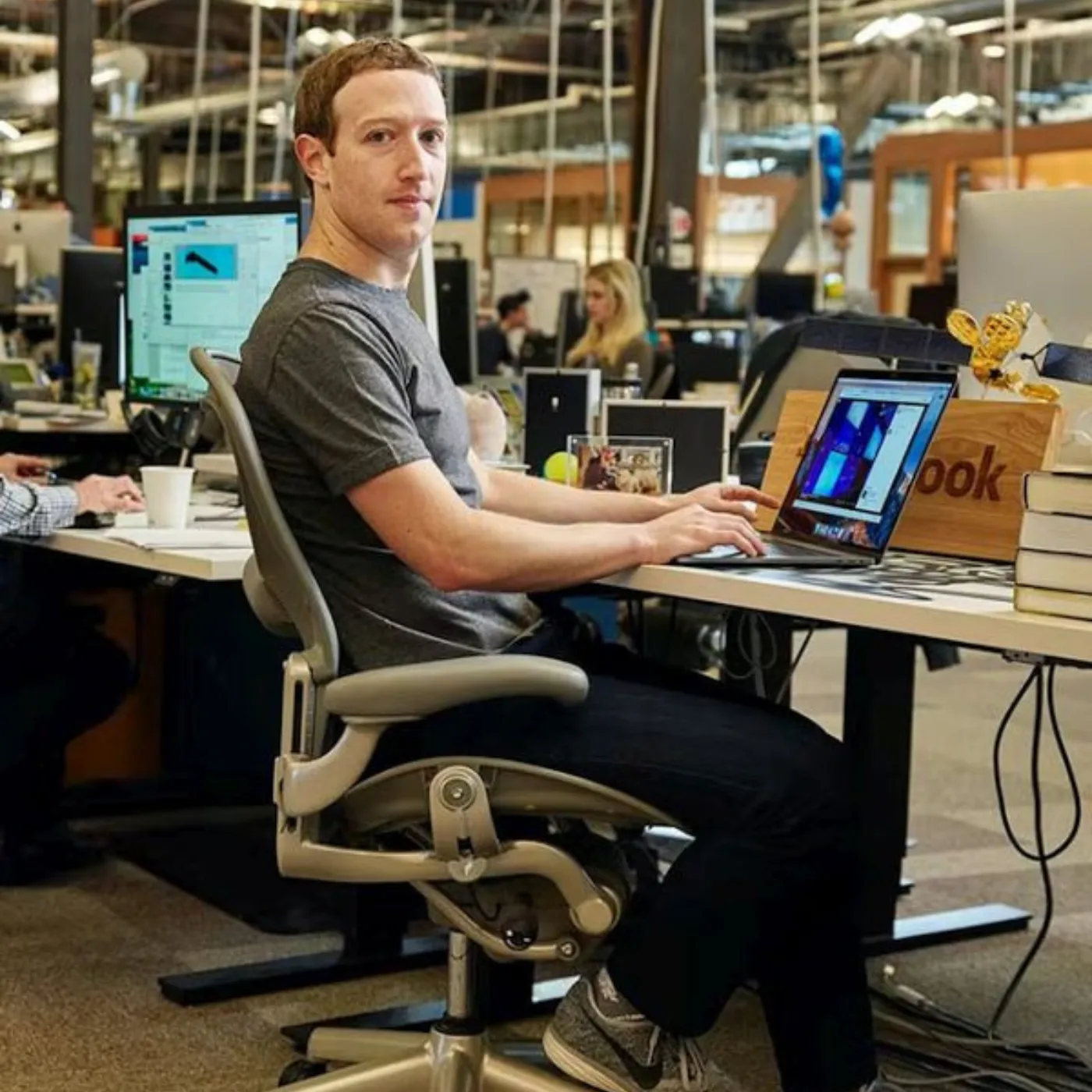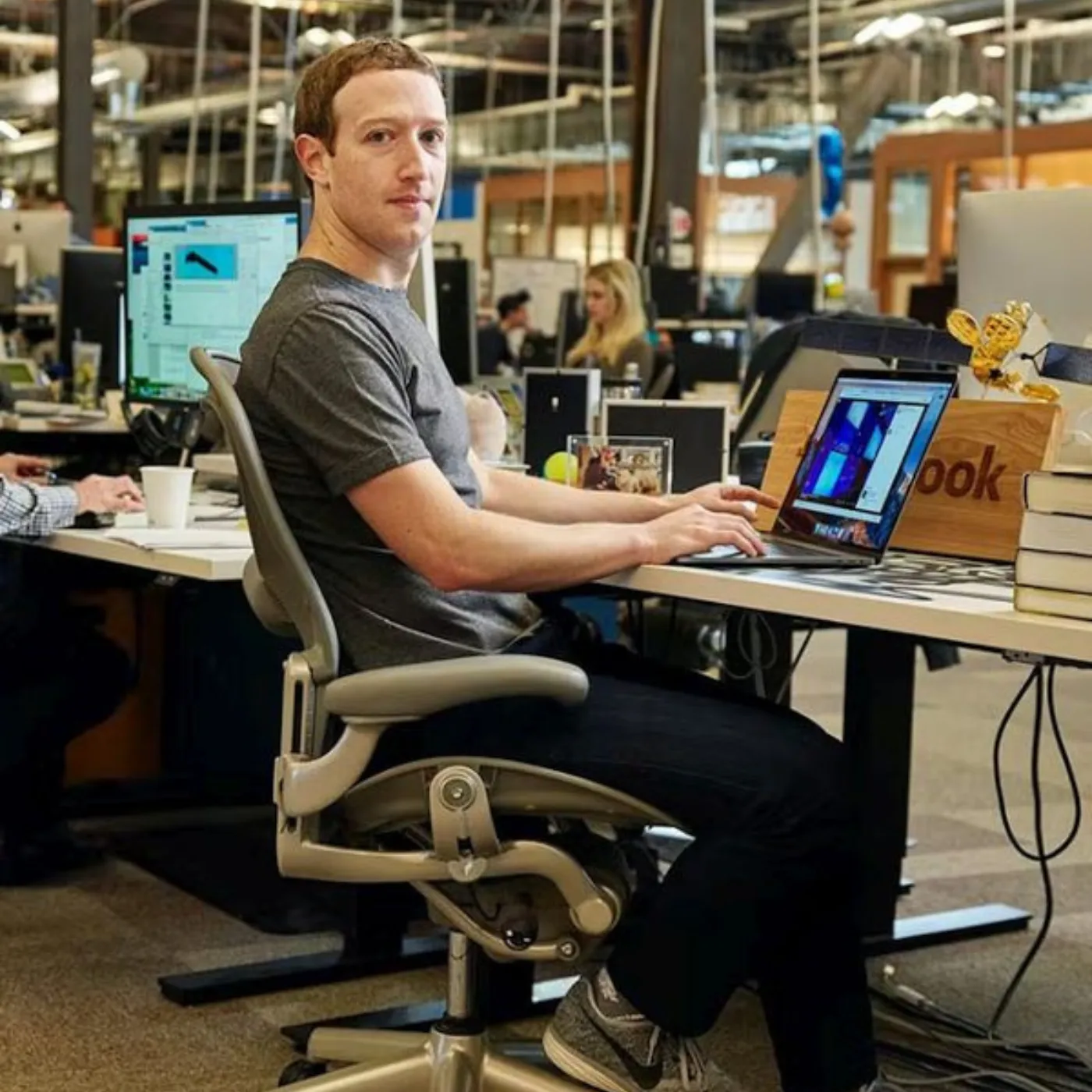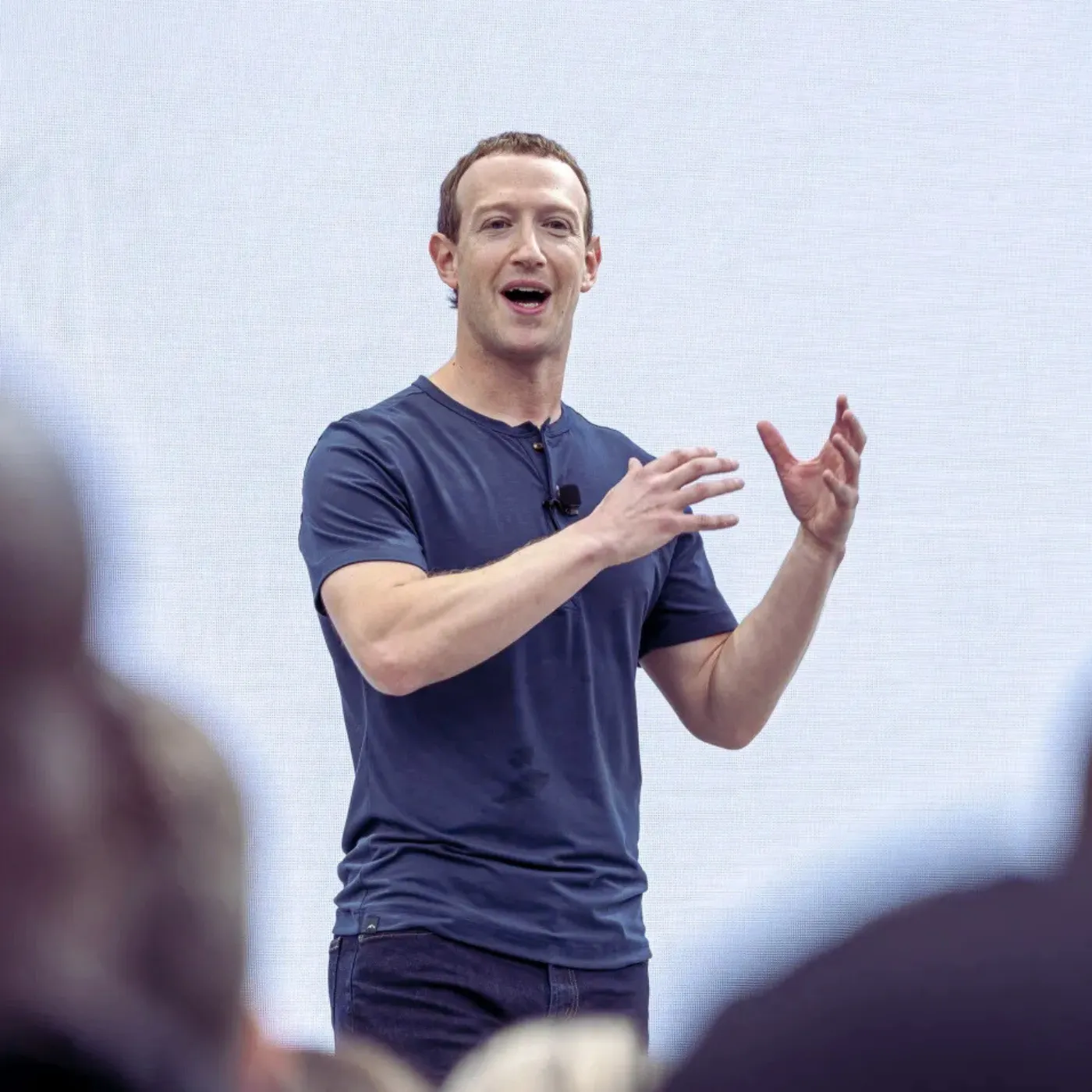

Mark Zuckerberg’s Silent Talent Raid Is Exploding—And Silicon Valley’s Losing Its Mind
There’s a storm coming. But not the kind you can see. It’s moving quietly, invisibly, through inboxes, DMs, and backchannels—a stealthy billion-dollar power grab disguised as job offers. And at the center of it all is one man: Mark Zuckerberg.

While Meta’s public narrative has remained focused on innovation and progress, behind the scenes, Zuckerberg has launched a silent war—a high-stakes, high-speed, no-mercy campaign to snatch the brightest AI minds from every major competitor in the game. And he’s got $100 million loaded and ready.
This isn’t hiring. This is extraction.
The $100 Million Blitz Nobody Saw Coming
According to multiple high-level recruiters and leaked emails, Meta has been quietly flooding the AI world with aggressive offers, some totaling mid-seven figures in salary and bonuses—for engineers not even looking to leave their jobs.
One former OpenAI researcher described it as “a digital ambush.” Another senior engineer at Apple said, “It’s not recruiting—it’s a full-blown campaign.” And most shocking of all? Most of the top talent is saying yes.
In just six months, Meta’s AI division has grown by over 200 engineers, many of whom were poached directly from rivals like Google DeepMind, Microsoft, and even Tesla’s AI team. It’s not just a hiring spree. It’s a brain drain. And it’s being surgically executed.
Why Is Zuckerberg Going So Hard Right Now?
Two words: AI dominance.
Zuckerberg is no stranger to playing catch-up. He missed the smartphone revolution. He fumbled the creator economy. But this time? He’s all in—with AI at the center of Meta’s next decade, and he’s not waiting around for consensus.
While other companies debate ethics and policy, Meta is moving like a private army, aggressively stockpiling talent, building proprietary models, and locking down expertise in computer vision, multimodal AI, and reinforcement learning.
Why now? Because Zuckerberg believes this is Meta’s make-or-break moment—and he’s prepared to outspend, outscale, and outmaneuver everyone else to get there.
Inside the Offers: How Meta Is Luring the Elite
Let’s talk numbers.
Sources close to Meta’s HR department confirm that standard offers for top-tier AI researchers start at $600,000—with some pushing past $1.2 million in combined cash, equity, and performance incentives. Relocation packages? All-inclusive. IP freedom? Negotiable. Time off? Generous.
But the real kicker? Autonomy.
Multiple engineers say that Meta is promising “startup-level freedom inside a trillion-dollar company.” In other words, Zuckerberg isn’t just offering cash—he’s offering power.
Teams are reportedly being given carte blanche to experiment—even build their own micro-departments within Meta AI. One insider called it “a blank check with an NDA.”

The Fallout: How Competitors Are Reacting
You can almost hear the alarms ringing in Mountain View and Redmond.
Google, Microsoft, and Amazon have begun scrambling to counteroffer talent that’s being approached. One Google manager called Meta’s hiring spree “predatory.” A senior Microsoft exec told Business Insider anonymously, “We’re watching them rebuild OpenAI from scratch.”
Even Nvidia and Apple—who typically don’t compete as directly in AI research—are reportedly beefing up retention packages, terrified of what Zuckerberg might do next.
Some companies have even started installing “Zuck-proof clauses” in contracts—temporary terms that block lateral moves to Meta for up to 18 months. But in most cases, the money is talking louder.
The Ethics Debate Zuckerberg Doesn’t Care About
Critics argue that this isn’t innovation—it’s intellectual looting. They claim that Zuckerberg is not building from within but instead raiding the communal hive mind of Silicon Valley.
Tech ethicists have voiced concerns about how Meta’s aggressive tactics might skew the development of AI—focusing on monetization rather than safety or fairness. Some insiders are even calling it the “Zuckerberg Protocol”—a ruthless method for acquiring IP through people rather than patents.
And yet, as the criticism mounts, Meta stays silent. No public apologies. No hand-wringing. Just more hires. More labs. More power.
Because for Zuckerberg, this isn’t about ethics. It’s about domination.
What’s Actually Being Built Behind the Curtain?
So what is all this brainpower building?
While Meta hasn’t officially announced a new large language model to rival ChatGPT or Gemini, insiders confirm that multiple new internal systems are in development, including
A proprietary LLM optimized for social behavior prediction
An AI-generated ad creative platform for real-time audience testing
A multimodal agent that combines voice, video, and motion tracking
And, most chillingly, a rumored emotion-mapping system for use in metaverse environments
If that last one sounds invasive, that’s because it is. But according to one former senior engineer, “It’s all part of the master plan—Zuckerberg doesn’t want to build tools. He wants to build behavioral ecosystems.”
A Shadow Army of Coders?
What makes this talent war even scarier is how fast it’s scaling.
Multiple contractors have confirmed that Meta is building satellite AI hubs in Singapore, Zurich, Tel Aviv, and Toronto—each quietly absorbing regional experts and operating like independent think tanks under Meta’s flag.
And none of this is publicized.
There are no launch events. No “Meta AI Conference.” Just relentless hiring, mostly happening behind closed doors, protected by NDA chains and shadow HR networks. Even Meta’s own internal directory has begun segmenting these new teams under non-descriptive code names.
This isn’t just corporate secrecy. It’s militarized innovation.
The Risk Zuckerberg Is Willing to Take
Let’s be clear: this level of hyper-concentrated hiring comes with risk. Morale inside Meta is reportedly strained. Legacy engineers feel alienated. HR is being pushed beyond operational limits. And critics believe the company is now overleveraged on AI—with no guarantee of return.
But Zuckerberg doesn’t seem worried.
Why?
Because he’s seen this before. He watched Facebook scale faster than anyone thought possible. He knows what it takes to crush competitors. He’s done it. And he’s betting he can do it again—this time with AI as his weapon.

The Verdict: Genius, Ruthless, or Both?
Some call it vision. Others call it piracy. But there’s no denying this: Mark Zuckerberg has declared war, and he’s doing it the only way he knows how—quietly, aggressively, and with a billion-dollar budget.
In an industry where ideas are king, he’s buying the kingdom outright. One hire at a time.
And if that doesn’t keep Silicon Valley awake at night, it should.
Because while others are debating policy, Zuckerberg is building the future. And by the time they realize what’s happening, he might already own it.


















